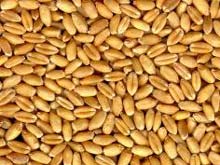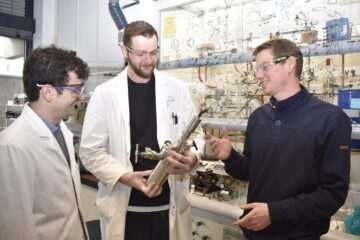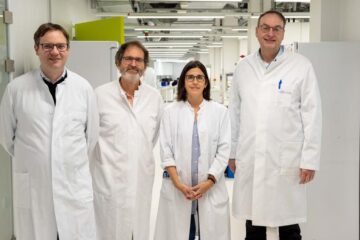Rapid ID system separates wheat from the chaff

CSIRO Plant Industry has developed a simple high-throughput testing system that accurately identifies wheat and barley varieties.
“Accurate identification of wheat and barley varieties provides assurance of quality for products that require different grain characteristics, like bread, noodles and beer,” says Dr Kevin Gale, CSIRO Plant Industry. “This is vital in maintaining Australia’s export reputation in product standards.” The variety ID system tests leaf or grain samples using a panel of DNA markers. Each marker gives a ’yes’ or ’no’ result. The pattern of results generates an individual ’bar code’ for each variety.
“Every wheat plant’s DNA is distinctive and we can use the results of an individual plant to match its barcode with a specified variety,” says Dr Gale.
Designed to be simple and very accurate, even for very closely related varieties, the system can easily process hundreds of samples in a day, outperforming previous tests in accuracy and throughput. “The test will allow the grains industry to confidently supply markets like Japan that require malting barley shipments to be essentially pure with respect to a specified variety,” says Dr Gale. “Variety testing also helps ensure end-point royalties are paid on improved new varieties, giving breeders the resources to keep producing better varieties of wheat and barley for farmers and consumers into the future.”
The wheat variety ID test is licensed by Agrifood Technology.
The wheat and barley ID systems have been developed with Graingene (a joint venture between CSIRO Plant Industry, the Grains Research and Development Corporation, AWB Ltd and Syngenta) and ABB Grain Ltd.
More information:
Dr Kevin Gale, CSIRO Plant Industry: 02 6246 5317, kevin.gale@csiro.au
Media Contact
All latest news from the category: Agricultural and Forestry Science
Newest articles

Efficient, sustainable and cost-effective hybrid energy storage system for modern power grids
EU project HyFlow: Over three years of research, the consortium of the EU project HyFlow has successfully developed a highly efficient, sustainable, and cost-effective hybrid energy storage system (HESS) that…

Safer alternative for an explosive reaction
The chemical industry has been using a reaction with explosive chemicals for over 100 years – now Mülheim scientists have discovered a safer alternative. The Ritter Group of the Max…

How immune cells communicate to fight viruses
Chemokines are signalling proteins that orchestrate the interaction of immune cells against pathogens and tumours. To understand this complex network, various techniques have been developed to identify chemokine-producing cells. However,…





















